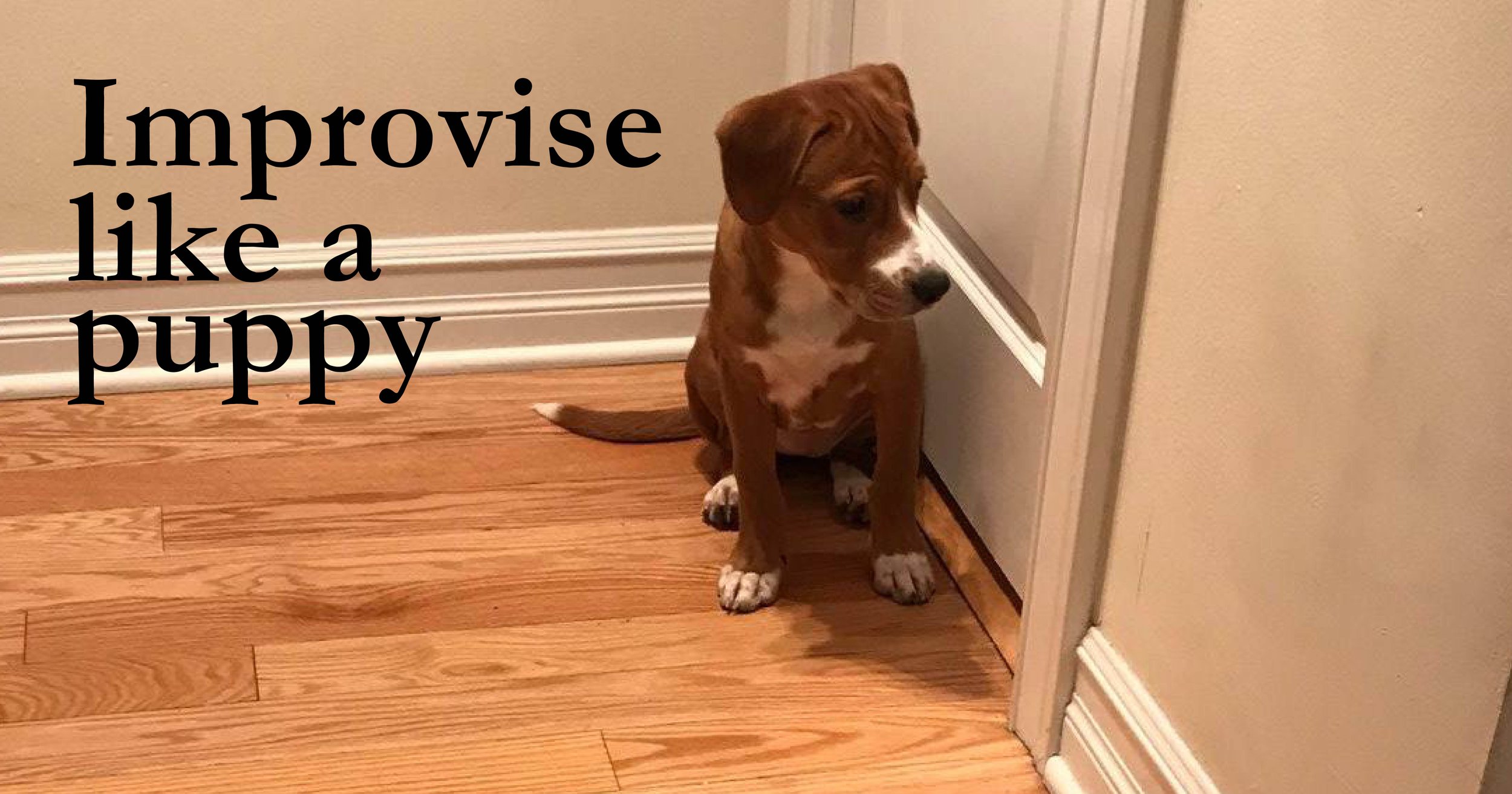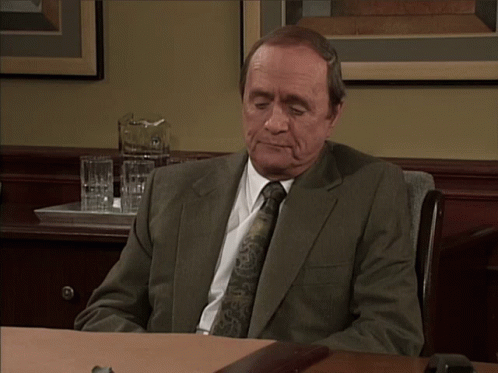Improvise like a Puppy
Back in 2017, we got a puppy. She is an adorable little pain in the butt, and we love her to death. She still has habits that she started as a puppy, and I've been fascinated by how much her little goofy traits overlap with the best improvisors.
We laugh about it, but she cannot stand it if one of us is out of the room. Step into the bedroom and close the door, and she will sit by the door and whine like the most interesting things in the world are happening just on the other side. She wants to be in "the room where it happens", as we've found ourselves saying constantly. Unlike lots of improvisors.
In 30 years of performing, teaching, and directing improv, I have seen countless scenes, and it is always striking to me how often players will focus on anything and everything that is outside of the scene. Other relationships, other times, other places. The more experienced improvisers will do their best to make the scene we are watching "the room where it happens".
Why the hell do we do this?
Simple. We're afraid of sucking. We're judging whether or not what we're doing is important, interesting, valid. So we try to control things as much as we can, by making a narrative of something happening elsewhere, or at some other time. We separate ourselves from emotional, vulnerable moments by telling the story of another time, another place, in the age of wonder…
We're in that worst place of all for any improvisor- in our heads.
How do we stop that?
It sucks to be in that place, but to get out of it, think like a puppy.
A puppy isn't interested in people who aren't there. A puppy is interested in you, right now. When you go for a walk, a puppy will regularly check in with you to see how you're doing. A puppy will cuddle you with reckless abandon. A puppy will, in every action, let you know how they are feeling. They want nothing more than to know how you are feeling.
Check in with your partner! Make eye contact. Touch them somehow. Make an I-emotion-you statement. Let your partner know how you feel about things, in every action, as often as possible!
A puppy loves to play. Everything is discovery, everything is a toy. Treat your environment the same way. Make use of everything. The more you use the environment, the better your scene will be. A lot of improv scenes take place in big empty voids with two talking heads and little action. If you can break out of that habit, so many options become available. Your scene will never made worse by adding the environment. Your puppy wouldn't ignore a toy (or shoe) that enters her field of vision. Think like a puppy!
Action begets action; words beget words. If you do something, you're much more likely to do more things. If you talk about things or relationships outside the scene, then you're likely do just talk about them forever. DO something! Play, puppy, play!
But people outside my scene DO exist! I'm not a puppy!
Yes, this is absolutely true. We are able to think about complex stuff that the most sophisticated pitbull couldn't comprehend. But puppies are pure emotion, and that's exactly what we want. Scenes and shows are about relationships bumping around. Relationships are about emotions bumping around. Start with the emotions and build from there, and the more sophisticated stuff will come in later, organically, naturally.
In a scene, talking about other people or times will creep in, definitely. But when you start a scene with talking about an offstage character or event, you create a gravity there. The relationship between you and someone outside the scene or between you and a past or future event becomes incredibly important, because we have no context whatsoever, other than the story you’re telling. It creates a black hole of scene energy, and everything gets sucked towards it. We start to wonder why we're not watching that scene, since it's (apparently) so damned interesting. We have to create an escape velocity to get away from the offstage scene, which is difficult. So why start in the first place? Be in that scene. To do so, simply switch from third-person pronouns to first- and second-person pronouns. Stop saying, “he, she, they”, and start saying, “I, you”. It will change everything. Your scene will go from “I’m breaking up with/marrying/moving in with/robbing a bank with/stealing the Declaration of Independence with them.” to… “I’m breaking up with/marrying/moving in with/robbing a bank with/stealing the Declaration of Independence with YOU.”
Let’s simplify and be lazy. Do a tiny bit of emotional work up front, so we can coast through our scenes without working so damn hard.
If you start a scene with the people in the room, no matter how mundane it might seem, you give context to everything else that happens to creep into the scene. If you have to talk about another person, it's in the context of this relationship, and it's like a prop in the current scene, not the entire focus of it.
Hopefully, that's helpful advice. Just think of a puppy the next time you want to be your best improv self.



